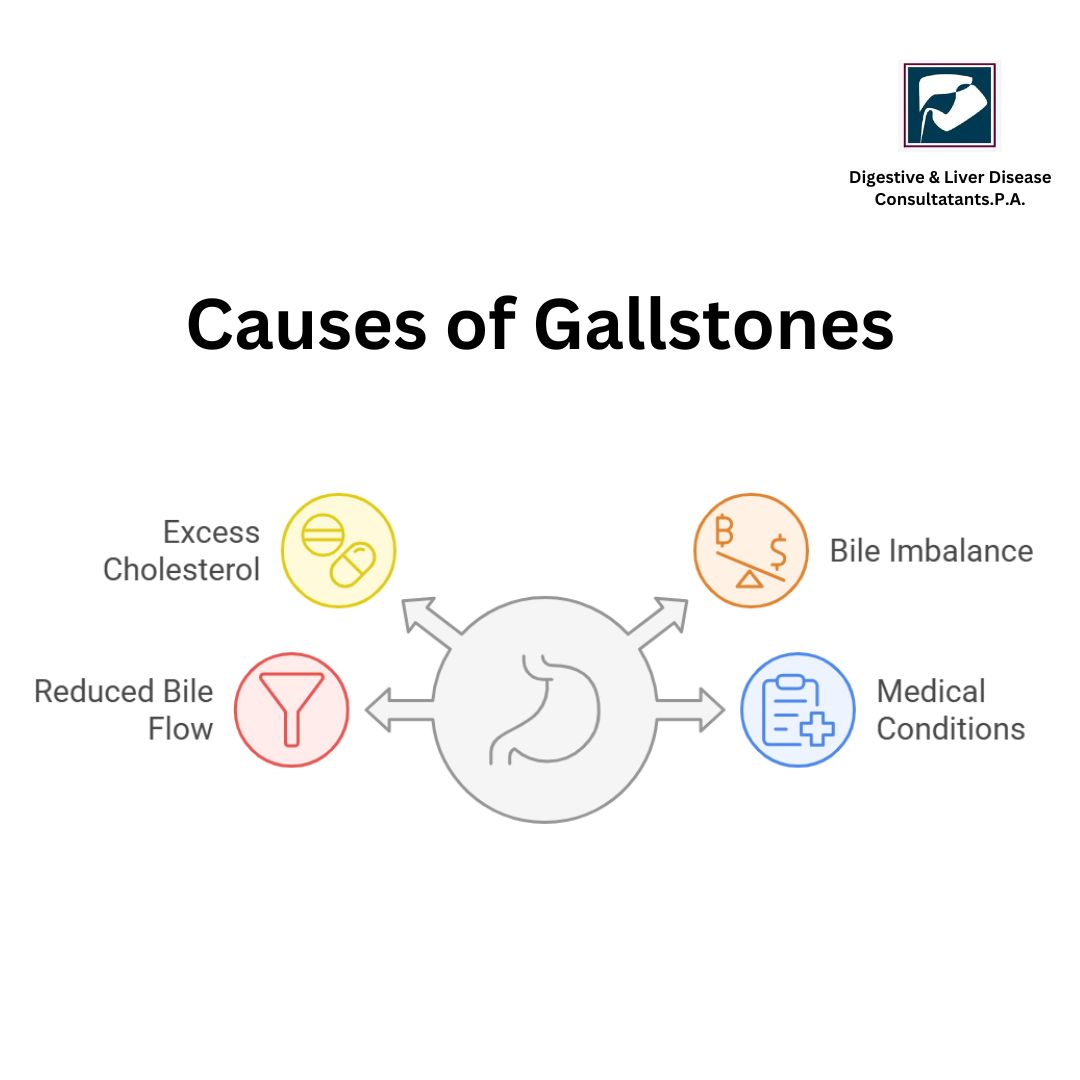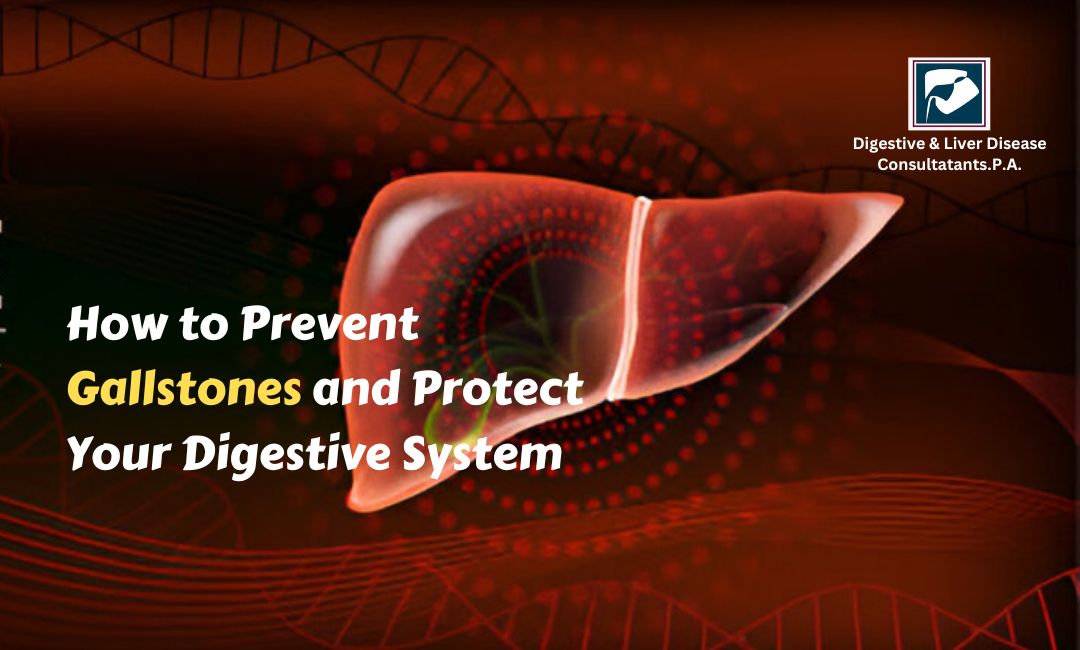Gallstones are small, hard deposits that form in the gallbladder, a pear-shaped organ located just beneath your liver. The gallbladder plays an essential role in digestion by storing bile, a substance produced by the liver that helps break down fats. While some people may have gallstones without experiencing any symptoms, others may suffer from painful conditions like a gallbladder attack. In this blog, we’ll discuss how gallstones form, risk factors, prevention strategies, and how maintaining a healthy digestive system can reduce the likelihood of gallstones.
What Are Gallstones?
Gallstones are typically made up of cholesterol or bilirubin (a substance produced when the liver breaks down red blood cells). They can vary in size from a grain of sand to a large ball. There are two main types of gallstones:
Cholesterol gallstones: These are the most common type and are usually yellow-green. They form when there’s too much cholesterol in the bile, leading to the formation of solid particles.
Pigment gallstones: These are smaller and darker in color, made of excess bilirubin. They tend to form in individuals with certain health conditions, such as liver cirrhosis or biliary tract infections.

What Causes Gallstones?
Several factors contribute to the formation of gallstones. The primary ones include:
Excess cholesterol: When there’s too much cholesterol in the bile, it can form crystals that eventually turn into gallstones.
Imbalance of bile components: If the balance of substances in the bile (such as cholesterol, bile salts, and phospholipids) is disturbed, gallstones can develop.
Reduced bile flow: When the gallbladder does not empty efficiently, bile can become concentrated and lead to gallstone formation.
Medical conditions: Certain conditions, such as diabetes, obesity, and liver diseases, can increase the likelihood of developing gallstones.
Risk Factors for Gallstones
Although anyone can develop gallstones, certain factors increase your risk:
Obesity: Being overweight is a significant risk factor for gallstones. Excess weight leads to an increase in cholesterol in the bile, contributing to gallstone formation.
Age and gender: Women, particularly those over 40, are more likely to develop gallstones. Hormonal changes related to pregnancy, birth control pills, or hormone replacement therapy can increase the risk.
Family history: A family history of gallstones increases the likelihood of developing them.
Pregnancy: Pregnant women experience hormonal changes that can affect bile composition and increase the risk of gallstones.
Diet: Diets high in fat, especially unhealthy fats, and low in fiber can increase your risk of developing gallstones.
How to Prevent Gallstones
While some factors, like age and genetics, are beyond your control, there are several lifestyle changes you can make to lower your risk of developing gallstones and promote digestive health.
1. Maintain a Healthy Weight
Being overweight increases the amount of cholesterol in your bile, which can lead to the formation of gallstones. However, rapid weight loss can also trigger gallstone formation, as it can lead to an imbalance in bile components. The key is to aim for gradual, sustainable weight loss through a balanced diet and regular exercise.
2. Eat a Balanced Diet
Your diet plays a crucial role in preventing gallstones. Focus on the following:
Increase fiber intake: High-fiber foods, such as fruits, vegetables, whole grains, and legumes, help support a healthy digestive system and prevent gallstones. Fiber aids in digestion and promotes regular bowel movements.
Limit unhealthy fats: Reduce your intake of saturated fats and trans fats, which can increase cholesterol levels and contribute to gallstone formation. Choose healthier fats, such as those found in olive oil, avocados, and nuts.
Include healthy fats: Healthy fats, particularly omega-3 fatty acids found in oily fish, can help reduce the formation of gallstones.
Stay hydrated: Drinking plenty of water helps keep bile flowing and reduces the risk of gallstone formation.
3. Exercise Regularly
Regular physical activity helps maintain a healthy weight and improves overall digestive health. Aim for at least 30 minutes of moderate exercise most days of the week. Activities such as walking, cycling, swimming, and yoga can all help reduce the risk of gallstones.
4. Avoid Rapid Weight Loss
If you're trying to lose weight, aim for a gradual loss of about 1–2 pounds per week. Rapid weight loss, such as through fad diets or very low-calorie diets, can increase the likelihood of gallstone formation because it causes the liver to release extra cholesterol into the bile.
5. Limit Processed and Fried Foods
Processed and fried foods often contain unhealthy fats and sugars, which can contribute to weight gain and increase your risk of gallstones. Reducing your consumption of these foods can help maintain your digestive health and prevent gallstones.
6. Consume More Vitamin C
Studies suggest that adequate vitamin C intake may reduce the risk of gallstones. This vitamin helps in the breakdown of cholesterol and can reduce its buildup in the gallbladder. Include foods like citrus fruits, strawberries, and bell peppers in your diet for a vitamin C boost.
7. Manage Health Conditions
Certain health conditions, such as diabetes and high cholesterol, can increase your risk of developing gallstones. Managing these conditions through lifestyle changes and medications can reduce your chances of developing gallstones.
Symptoms of Gallstones
While many people with gallstones don't experience symptoms, some may suffer from:
- Severe pain in the upper right abdomen (often after eating fatty meals)
- Nausea or vomiting
- Indigestion or bloating
- Jaundice (yellowing of the skin or eyes)
If you experience these symptoms, it’s essential to consult a doctor for evaluation and treatment.
Digestive & Liver Disease Consultants, P.A.
At Digestive & Liver Disease Consultants, P.A., we specialize in diagnosing and treating a wide range of digestive and liver-related conditions, including gallstones. Our team of expert gastroenterologists and hepatologists is dedicated to providing personalized care and effective treatment options to improve your digestive health.
Whether you're looking to prevent gallstones or need treatment for an existing condition, we are here to help. We offer advanced diagnostic tools and the latest treatment options, ensuring that you receive the highest level of care.
Conclusion
Preventing gallstones involves a combination of maintaining a healthy weight, eating a balanced diet, staying active, and managing any existing health conditions. By adopting these habits, you can reduce your risk and protect your digestive system from unnecessary complications.
If you suffer from gallstones or have concerns about your digestive health, don’t hesitate to reach out to our experts at Digestive & Liver Disease Consultants, P.A.






